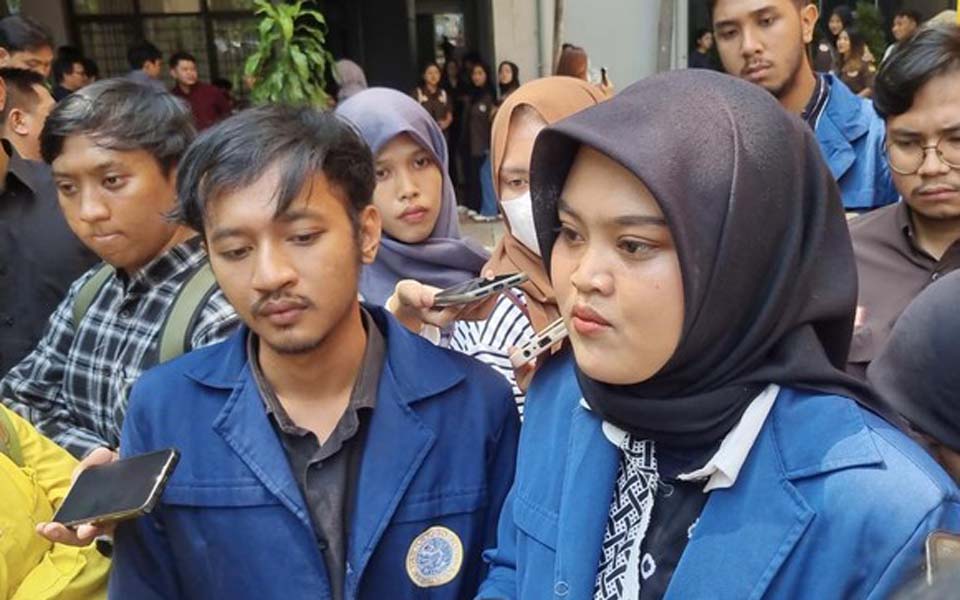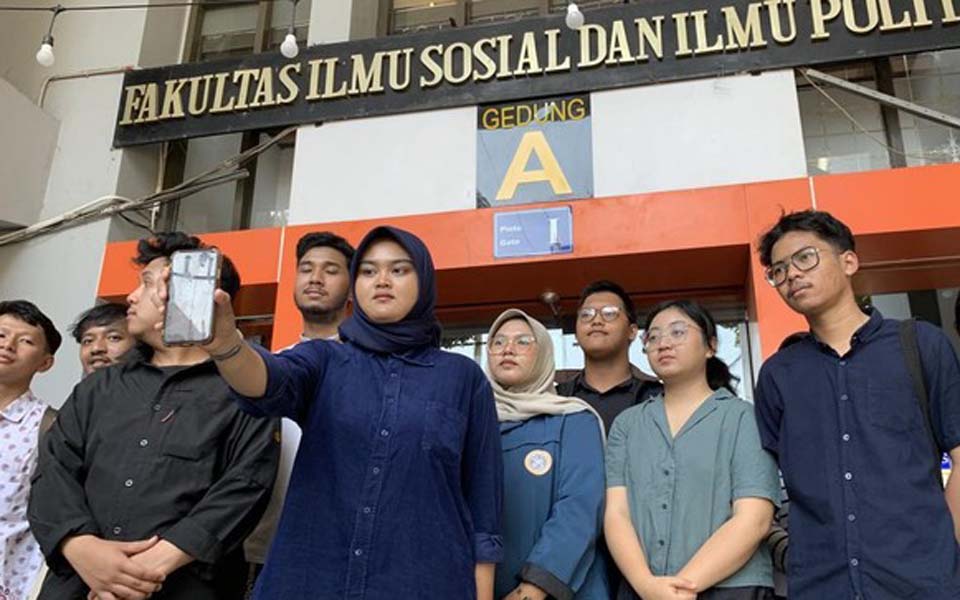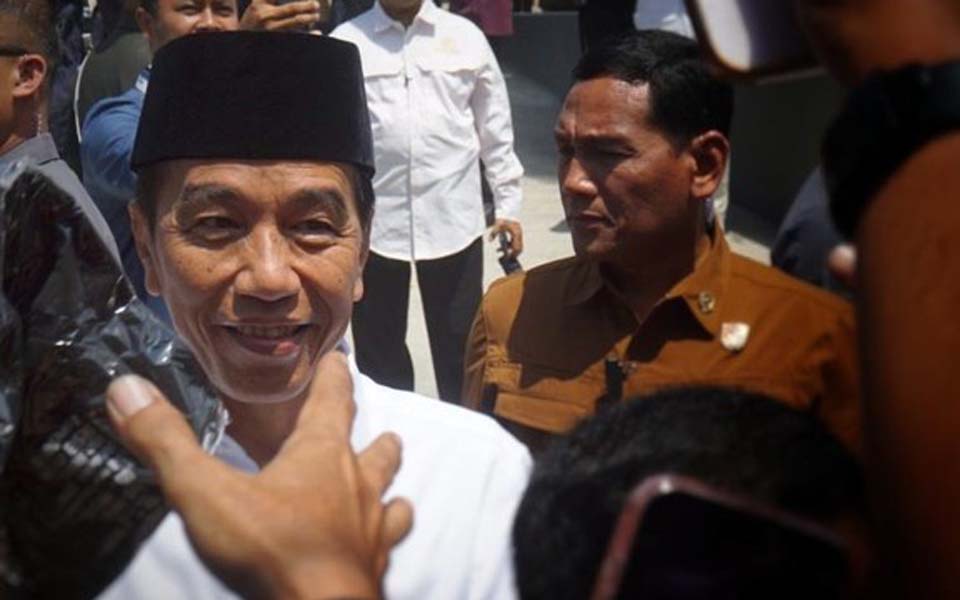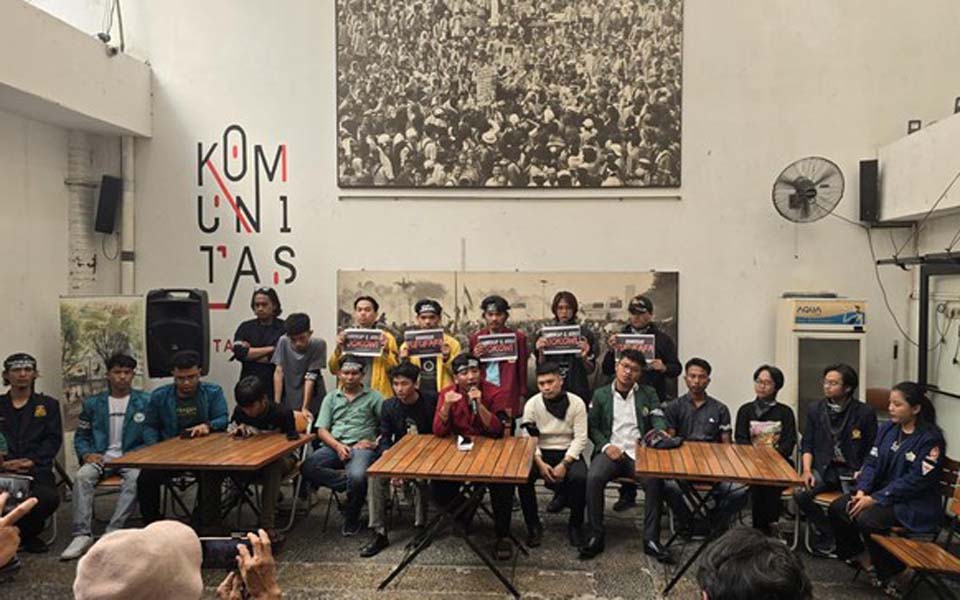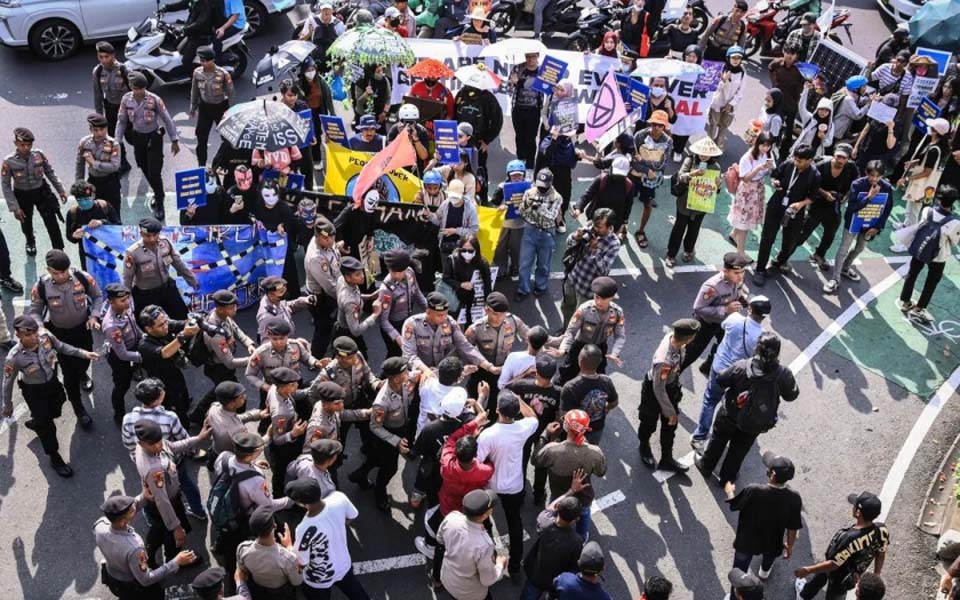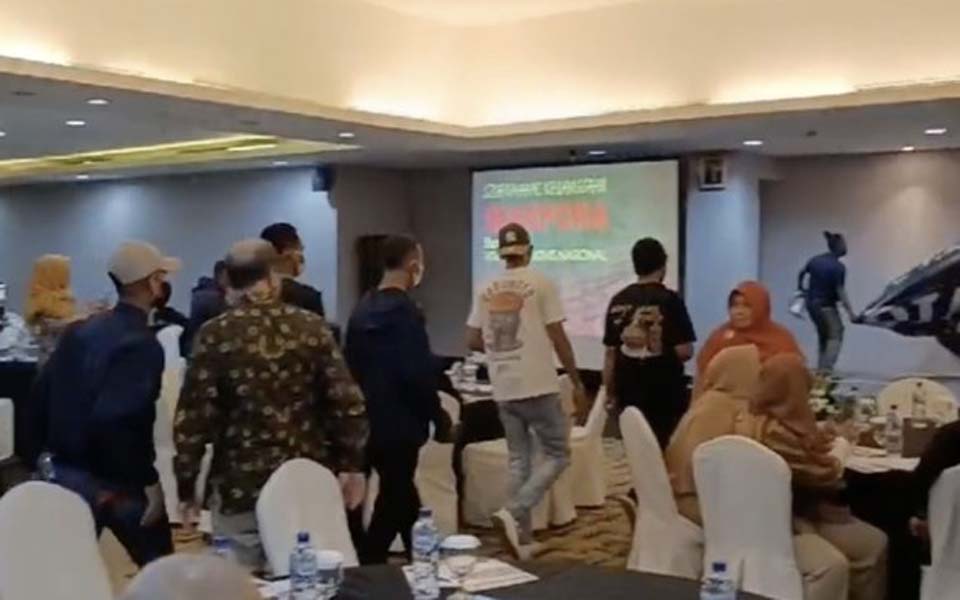Denpasar – The Southeast Asia Freedom of Expression Network (SAFEnet), a regional organisation which defends digital rights, says that digital attacks against critical groups in Indonesia have taken on an increasingly political nuance.
In 2021 there were at least 193 incidents of digital attacks. This is a 38 percent increase compared with the previous year in which there were 147 incidents.
The climax of the attacks occurred in September (34 incidents), which was also higher than the average number monthly attacks of around 16.
Based on SAFEnet's monitoring and analysis, the state of digital rights in Indonesia in 2021 has not improved. Digital repression is still rampant and includes restricting internet access, the criminalisation of expression by citizens on social media and widespread online gender based violence (KBGO), as well as digital attacks against civil society groups.
"The state of digital rights in Indonesia has yet to improve, in the midst of a pandemic which is beginning to come under control, digital repression has in fact increased", said SAFEnet Executive Director Damar Juniarto during the launch of a report titled Report on the State of Digital Rights in Indonesia in 2021 on Wednesday March 2.
Juniarto said that if you look at the background of the attack victims, it becomes apparent that digital attacks in Indonesia are indeed becoming more political.
This can be seen from the large number attacks against critical groups, namely activists, journalists and media, students and civil society organisations, which accounted for 58.95 percent of all attacks.
The right to a sense of security is also being progressively lost due to rampant online gender based violence. In 2021, SAFEnet received 677 reports of online gender based valence, including those referred to it by the National Commission on Violence Against Women (Komnas Perempuan).
Almost all of the provinces in Indonesia, some 26, submitted reports. The region with the most reports was Java with as many as 339 complaints, followed by regions outside of Java with 87 complaints, along with two complaints from overseas and 249 complaints of unknown locations.
"Digital repression is still continuing to occur and this needs to be addressed by extra efforts and many parties in order to improve digital resilience and joint measures to halt the retreat of democracy", said Juniarto.
According to Juniarto, these digital attacks cover three aspects in terms of digital rights, namely the right to access the internet, the right to freedom of expression and the right to a sense of security in the digital realm.
On other issues, it was revealed that internet speed in Indonesia is still the slowest compared with neighbouring countries. Globally, Indonesia is in 76th place for internet speed access using cable connections (landline) and even lower again for access using mobile devices.
In terms of content, according to a Google Transparency Report in 2021, the Indonesian government was the country with the highest volume of requests for the removal of content with Google, namely 254.461 content items, which is even higher than Russia with 205,802.
"This issue of course gives rise to vulnerability [of content] and because of the mass removal of content the digital rights of citizens are violated", Juniarto added.
The other form of repression is the many disruptions to internet access in Papua. In 2021 there were at least 12 internet access disruptions on the grounds of security or technical issues.
In terms of policy and law, Indonesia showed a poor track record due to the issuance of Government Regulation Number 46/2021 despite criticisms being articulated over violations against the neutrality of the internet when the regulations was still named the Draft Government Regulation on Postal, Telecommunication and Broadcasting Sectors (RPP Postelsiar).
In addition to this, the Constitutional Court rejected a judicial review by the Indonesian Alliance of Independent Journalists (AJI) and the news portal Suara Papua against Article 40 of the Information and Electronic Transaction (ITE) Law which is vulnerable to misuse in order to restrict internet access.
On the aspect of freedom of expression, the report shows that the criminalisation of expression against citizens using digital media is also continuing.
In 2021, there were at least 30 cases of prosecutions involving a total of 38 victims. This total declined by almost half compared with the number of victims in the previous year which amounting to 84 people.
"Since the ITE Law was enacted in 2008, it is only this time around that activists have occupied the first rank of the total number of victims based on background, namely as many as 10 people or 26,3 percent of the total victims", Juniarto explained.
In terms of a sense of security, 2021 was still marred by widespread digital attacks against civil society, primarily critical groups such as journalists, activists and human rights defenders.
Two of these cases involving the hacking of accounts belonging to anti-corruption activists in May 2021 and a former Corruption Eradication Commission (KPK) Commissioner in September 2021.
[Translated by James Balowski. The original title of the article was "SAFEnet: Serangan Digital terhadap Kelompok Kritis di Indonesia Semakin Politis".]







